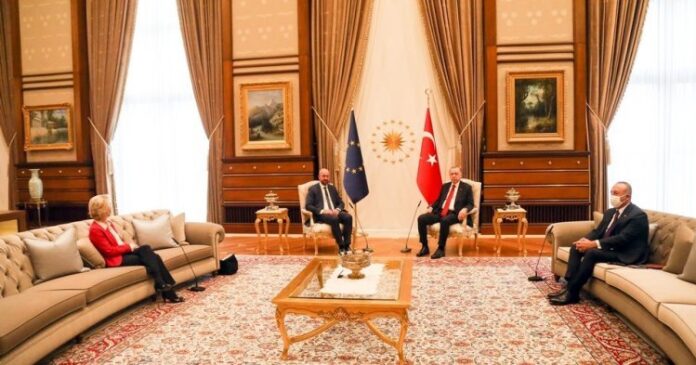Turkey’s accession process to the European Union is at a standstill. At the beginning of October, at the inaugural session of Parliament, Turkish President Recep Tayyip Erdogan declared that he “expected nothing more from the European Union, which has kept us waiting at its door for forty years”. However, migratory, geopolitical and economic issues link them in a relationship of interdependence, forcing Brussels and Ankara to maintain dialogue, despite numerous stumbling blocks.
“We have kept all the promises we made to the European Union, but they have kept almost none of theirs,” the Turkish president took offense on Sunday, October 1, in front of an audience of nearly 600 deputies, before warning the EU that “if they do not reverse certain injustices such as the imposition of visas, which they use as a latent sanction, if they do not correct their errors […], they will lose fully the right to express political, social, economic or military expectations on our part.
Started in 2005, Turkey’s accession process to the European Union has always been up and down. For comparison, Croatia started negotiations at the same time, and it has been almost ten years since it joined the EU. Today, the Council of the European Union regrets that Turkey’s accession process has been “at a standstill” for four years. The reforms that Brussels is demanding from Ankara, particularly those surrounding the development of the rule of law, have not been put in place; Conversely, and in an accelerated manner since the attempted coup in 2016, the country is sinking into authoritarianism.
Obstacles to membership
For some, the simple fact that 97% of the territory is in Asia is enough to write Turkey off as a potential candidate. For others, the problem is that the overwhelming majority of the population of this country of 85 million is Muslim.
Also, Turkey is entangled in numerous cases of human rights violations. The latest is embodied in a judgment of the European Court of Human Rights which accuses Turkey of having condemned a man for belonging to a terrorist organization, with the only evidence being the use by this person of the Byblock encrypted messaging application. Considered the communications relay for those presumed responsible for the failed 2016 putsch, which, let us remember, left more than 250 dead, and which was followed by a wave of mass arrests and political purges never before observed in Turkey . Since this event, the prerogatives of the Turkish justice system have been weakened, opponents have been repressed and individual freedoms restricted, while reforms implemented by the state have given more power to the president.
In addition, Ankara is demonstrating aggressive diplomacy which worries the EU. Numerous disagreements oppose them in Libya, Syria, Nagorno-Karabakh and even in the Aegean Sea, where the presence of hydrocarbons has led to strong tensions between Greece and Turkey. Let us also cite Ankara’s support for the Turkish Republic of Northern Cyprus, while the EU considers this region to be occupied.
A relationship of interdependence
If the accession process is no longer moving forward, collaboration remains reciprocally necessary, according to Nicolas Monceau, lecturer in political science at the University of Bordeaux.
According to him, for Brussels, Turkey constituted itself as a bulwark against the waves of immigration which followed the outbreak of the civil war in Syria. In exchange for European aid, Ankara agreed to keep more than 3.7 million Syrian refugees on its soil. The renewal of this agreement therefore constitutes an important issue.
The researcher also underlines the highly strategic nature of Turkey, a true “energy hub” which the EU cannot do without, especially since the start of the war in Ukraine and the end of deliveries of Russian hydrocarbons. Furthermore, the role of mediator that Erdogan embraced in this conflict contributed to making it necessary to maintain dialogue between Europe and Turkey.
For Ankara, the Union remains its main trading partner. The country cannot turn its back on European investments, its innovations and its standards.
Oliver Varhelyi, European Commissioner for Enlargement, does not share this opinion. For him, “it is vital that the path to Turkey’s accession to the EU is cleared and that the prospect of accession is revitalized”. The sine qua non condition for Turkish membership remains the presentation of a “credible road map” concerning reforms linked to democracy and the rule of law.
But Ankara does not seem inclined to comply. It is even the opposite according to Marc Pierini, former ambassador of the European Union to Turkey who, in a column in Le Monde, associates Erdogan’s re-election with the “strengthening of an institutionalized autocracy”, and “the ‘total absence of reference to questions relating to the rule of law’. He worries that by “turning away from Europe, [Turkey] would position itself closer to autocratic leaders”.
An opinion shared by N. Monceau for whom such a pivot could open the way to a strengthening of economic and commercial exchanges between Turkey and actors such as Russia or China. According to his words, in the event of a worsening of relations, Turkey could turn away from the management of the migration crisis that it has contained until now, which could lead to significant repercussions on the European Union.
In short, relations between the European Union and Ankara remain at an impasse. Persistent differences, whether concerning human rights, territorial issues or Turkey’s authoritarian evolution, complicate the accession process. This delicate situation could lead to a sharper separation, reshaping regional and global alliances, with potentially significant consequences for Europe and Turkey’s status. Today, Erdogan’s foreign policy is turning away from Europe. Erdogan’s Turkey intends to reconnect with its Ottoman past and is now turning its ambitions towards the Middle East.
This article is originally published on .taurillon.org




